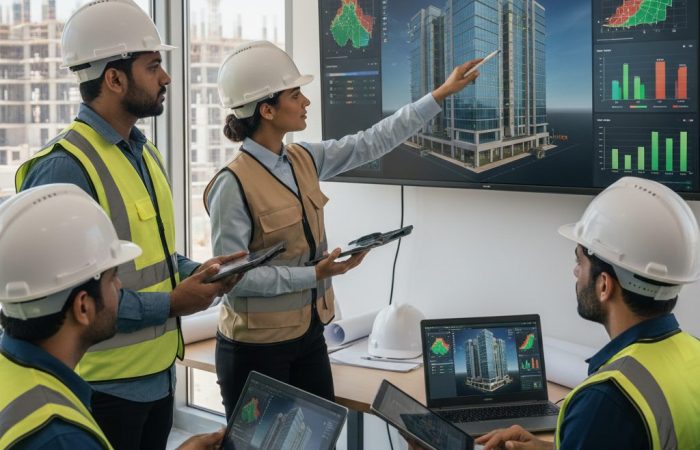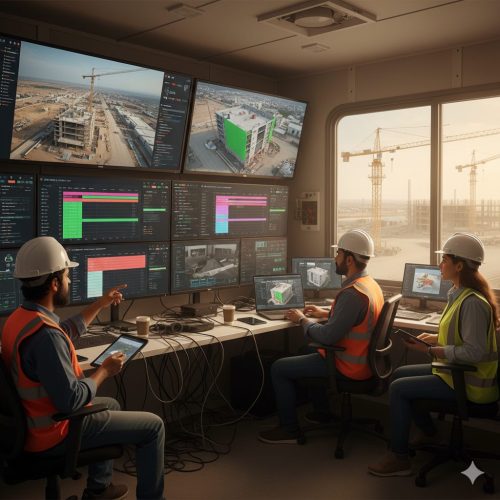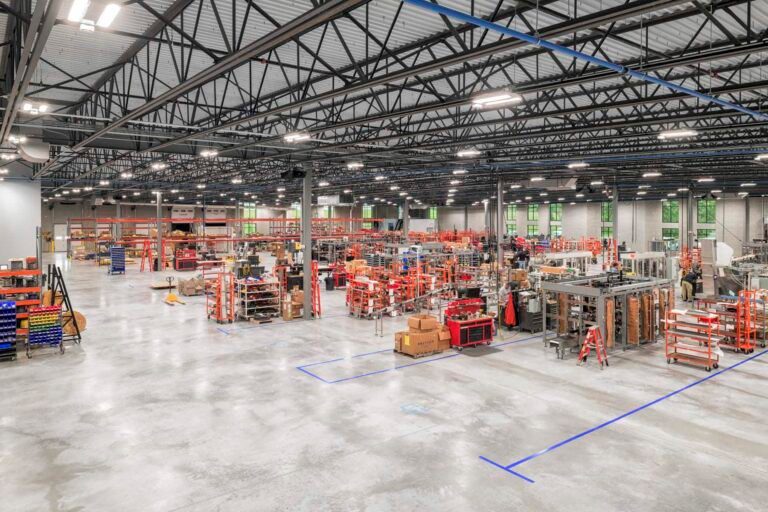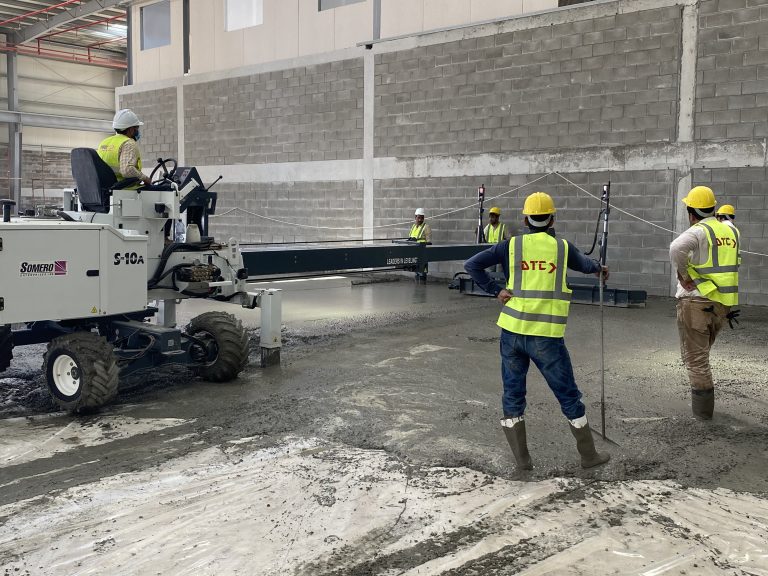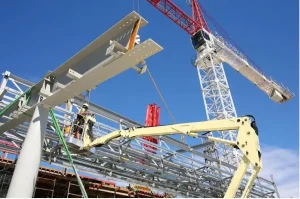Digital Tools for Construction Planning and Monitoring
The construction industry in Saudi Arabia is undergoing a significant transformation driven by rapid technological advancements. With mega projects such as NEOM, the Red Sea Project, and Riyadh Metro redefining urban landscapes, efficient project planning and monitoring have become more critical than ever. The adoption of digital tools in construction is no longer optional; it has become a necessity to ensure projects are delivered on time, within budget, and with optimal quality standards.
The Role of Digital Transformation in Saudi Construction
Digital transformation in construction refers to the integration of advanced technologies to enhance planning, execution, and monitoring of construction projects. In Saudi Arabia, Vision 2030 emphasizes infrastructure development, making construction efficiency a top priority. Digital tools play a crucial role in this transformation by enabling:
-
Real-time project monitoring
-
Improved resource allocation
-
Enhanced collaboration among stakeholders
-
Accurate forecasting and risk management
By leveraging digital solutions, construction companies can overcome common challenges such as delays, cost overruns, and inefficient communication.
Key Digital Tools for Construction Planning

1. Building Information Modeling (BIM)
Building Information Modeling (BIM) is one of the most transformative digital tools in construction planning. BIM allows engineers, architects, and contractors to create a 3D model of the entire project, integrating design, structural, and operational information into a single platform.
Benefits of BIM in Saudi Construction:
-
Enhanced collaboration between multidisciplinary teams
-
Reduced design errors and rework
-
Efficient clash detection before construction begins
-
Improved project visualization for stakeholders
In large-scale projects in Saudi Arabia, BIM has become a standard for ensuring high efficiency and quality control.
2. Project Management Software
Project management tools such as Primavera P6, Microsoft Project, and Procore have revolutionized planning in the construction sector. These platforms help manage schedules, budgets, and resources effectively.
Advantages:
-
Streamlined project scheduling and task allocation
-
Real-time tracking of milestones and deadlines
-
Centralized documentation and reporting
-
Automated alerts for delays or budget overruns
By adopting these tools, Saudi construction companies can improve decision-making and reduce human errors.
3. Drone Technology
Drones have become increasingly popular for site surveys, progress tracking, and safety monitoring. Equipped with high-resolution cameras and GPS technology, drones provide accurate aerial views of construction sites.
Applications in Saudi Arabia:
-
Topographical surveys for mega projects like NEOM
-
Real-time monitoring of project progress
-
Safety inspections in high-risk areas
-
Site mapping and volumetric calculations for earthworks
Drones reduce manual labor and provide precise data, which enhances planning and resource allocation.
4. Digital Twin Technology
Digital Twin technology creates a virtual replica of physical assets, processes, or systems. In construction, this allows for continuous monitoring and predictive maintenance.
Benefits:
-
Simulation of project scenarios to optimize design
-
Real-time performance tracking of machinery and infrastructure
-
Predictive analytics to prevent delays and reduce maintenance costs
This technology aligns perfectly with Saudi Arabia’s emphasis on smart cities and sustainable infrastructure.
5. Cloud-Based Collaboration Platforms
Digital collaboration tools such as BIM 360, Aconex, and PlanGrid enable seamless communication between stakeholders, even when geographically dispersed.
Benefits:
-
Centralized storage of project documents
-
Instant updates and version control
-
Improved coordination between contractors, clients, and consultants
-
Reduction in miscommunication-related delays
Cloud platforms are particularly important in Saudi Arabia, where construction projects often involve multiple international contractors.
Monitoring Construction Projects Digitally

Digital tools do not only aid in planning but also enhance project monitoring. Real-time monitoring ensures that deviations from plans are quickly identified and corrected, minimizing risks and improving efficiency.
1. Real-Time Progress Tracking
By integrating IoT devices, sensors, and mobile applications, construction managers can monitor:
-
Equipment usage and performance
-
Workforce productivity
-
Material deliveries and inventory
This level of monitoring ensures projects stay on schedule and budget.
2. Automated Reporting
Digital tools can generate automated reports on project status, financials, and resource utilization. This reduces the need for manual data compilation and enhances transparency. Stakeholders receive accurate insights, enabling timely decision-making.
3. Predictive Analytics
Artificial Intelligence (AI) and Machine Learning (ML) are increasingly integrated into construction monitoring. Predictive analytics can forecast:
-
Potential delays due to weather or labor shortages
-
Equipment breakdowns and maintenance needs
-
Cost overruns before they occur
In Saudi Arabia, predictive analytics is particularly useful for large-scale infrastructure projects where delays can have significant economic impacts.
4. Safety Management
Digital tools enhance safety monitoring by tracking hazards, incidents, and compliance in real-time. Wearable devices can monitor worker health and site safety conditions, reducing accidents and legal liabilities.
Advantages of Digital Tools in Saudi Construction
The integration of digital tools offers numerous benefits for the Saudi construction industry:
-
Enhanced Efficiency: Streamlined planning and real-time monitoring reduce project delays and operational bottlenecks.
-
Cost Reduction: Accurate forecasting and resource optimization minimize waste and budget overruns.
-
Improved Quality: BIM and digital twins ensure design accuracy and high construction standards.
-
Sustainability: Efficient resource management aligns with Saudi Arabia’s focus on green construction and environmental sustainability.
-
Risk Mitigation: Real-time monitoring and predictive analytics help identify potential risks early.
Challenges and Solutions
While the adoption of digital tools is transforming Saudi construction, some challenges persist:
-
High Initial Investment: Implementing advanced tools requires significant capital.
Solution: Long-term cost savings and efficiency gains justify the investment. -
Skills Gap: Workforce may lack digital literacy.
Solution: Training programs and workshops can upskill employees. -
Integration Issues: Combining multiple tools can be complex.
Solution: Using interoperable platforms and cloud-based solutions ensures seamless integration.
By addressing these challenges, companies can fully leverage the benefits of digital tools.
Future of Digital Construction in Saudi Arabia

The future of construction in Saudi Arabia is closely tied to digital innovation. With initiatives like Vision 2030 emphasizing smart cities, sustainable infrastructure, and mega projects, digital tools will play an increasingly critical role. Emerging technologies such as AI-driven project management, augmented reality (AR) for on-site visualization, and blockchain for secure project documentation will redefine construction practices in the Kingdom.
Saudi construction companies that invest in digital transformation today will gain a competitive edge, delivering projects more efficiently, safely, and sustainably.

